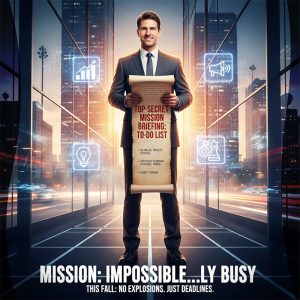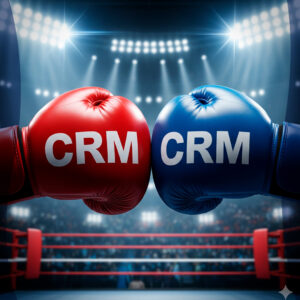
December Business Playbook: Retain Clients & Boost Revenue
Prepare Your Business for Q1 2026 December is not just
By Jean-Charles Spanelis – June 22, 2025

The rise of remote work, distributed teams, and flexible structures has ushered in a new era for companies: the hybrid organization. While this model brings agility and reach, it also creates unique challenges for managers and leaders.
Traditional leadership no longer meets the moment. In its place, adaptive leadership is emerging—a dynamic approach that adjusts to shifting contexts and inspires cohesion across distance.
In hybrid organizations, some employees work from the office, others remotely, and many across multiple time zones. Managing such diversity requires more than coordination—it demands thoughtful leadership.
👉 Explore how to structure your sales organization through maturity levels to ensure alignment and performance, even when teams are distributed.
Without clear guidance, flexibility, and empathy, hybrid teams can quickly feel fragmented, unmotivated, and misaligned. Leadership becomes the linchpin for maintaining unity, engagement, and collective momentum.
Adaptive leaders don’t stick to one formula. They alternate between active listening, coaching, and directive leadership as the situation requires. This agility is vital for managing complex, evolving teams.
Hybrid leadership requires intentional communication. Regular check-ins, clear agendas, and consistent team rhythms help bridge the physical gap and maintain emotional proximity.
Rather than micromanaging, adaptive leaders define clear boundaries and trust their teams to deliver. Empowerment fosters ownership, provided it’s supported with the right frameworks.
👉 Discover how mastering the BANT methodology can help teams remain focused and effective—even across distances.
Adaptive leadership isn’t just about well-being. It drives tangible business outcomes. Engaged, autonomous, and aligned teams perform faster, better, and more sustainably—even in volatile environments.
👉 See also: Commercial outsourcing for SMEs – how experienced outsourced leaders can enhance your commercial performance in hybrid settings.
As the world of work evolves, so must our leadership models. Adaptive leadership is not just a soft skill—it’s a strategic asset for any business navigating hybrid complexity.
At Finelis, we support leaders and teams with tailored solutions that strengthen cohesion, performance, and resilience.
📞 Ready to take your hybrid leadership to the next level?

Prepare Your Business for Q1 2026 December is not just

Between strategy, leadership, and delegation, learn how CEOs can transform their overwhelming to-do lists into powerful instruments of business clarity.

Understanding your website visitors means unlocking insights to sharpen your sales strategy, personalize outreach, and drive measurable results.

Lead generation is no longer about quantity but quality. In 2025, success comes from targeting the right prospects and guiding them with trust and care.

There is no absolute winner in the CRM battle. The right CRM is the one that matches your goals, teams and sales maturity.

Leadership can be isolating. Executive coaching provides support, perspective, and tools to help leaders make confident and effective decisions.